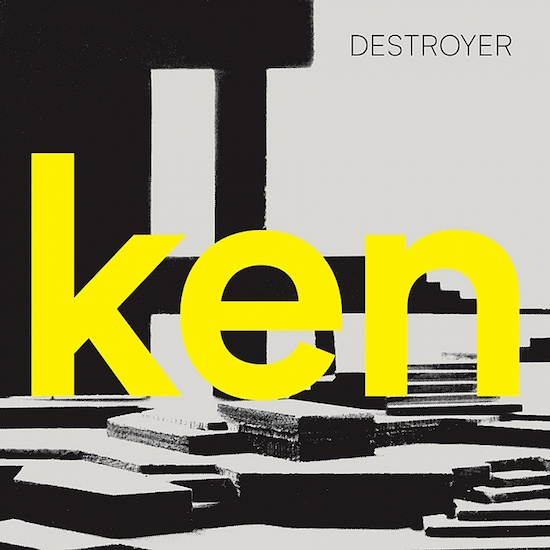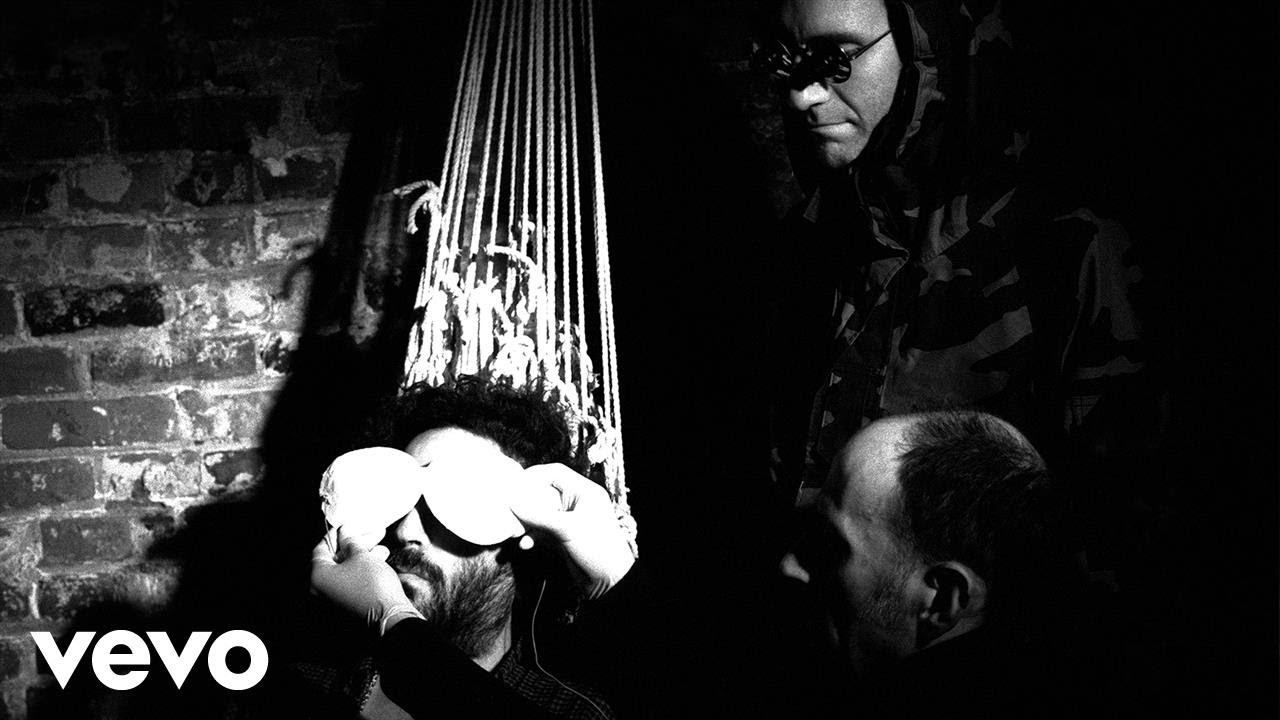In retrospect, we can discern the seeds of this album’s existence hiding in plain sight in Dan Bejar’s discography, both as Destroyer and in other projects. From Kaputt’s title track: “Sounds, Smash Hits, Melody Maker, NME, all sound like a dream to me.” Or, from Destroyer’s Rubies’ ‘Watercolours Into the Ocean’: “Listening to ‘Strawberry Wine’ for the hundred and thirty-first time / It was 1987, it was spring, it’s 1987 all the time.” Or the cover of New Order’s ‘Leave Me Alone’ that Destroyer contributed to Mojo magazine’s take on Power, Corruption and Lies. Or the recent djjohnedwardcollins@gmail.com remix of standalone single ‘My Mystery’. Or the precise, taut power-pop of The New Pornographers’ ‘War on the East Coast’. All of these previous lyrical and musical clues snap into sharp relief upon listening to ken, Bejar’s eleventh album as Destroyer. All of which is a way of saying that ken achieves yet again what every Destroyer album thus far has done: a balance of rupture and continuity, Bejar’s endlessly fascinating trick of simultaneously sounding unlike his past selves yet like nobody but himself.
Sounding like nobody but himself doesn’t preclude Bejar from being open about his influences. For ken, Bejar has ditched the amalgam of Bob Dylan, Van Morrison and Joni Mitchell that animated his previous album, Poison Season; ken instead recalls the world of late-80s British indie, the music that Bejar listened to in, as he puts it in this album’s cryptic press release, “the years when music first really came at me like a sickness, I had it bad.” ken is named, in a roundabout way, after Suede’s ‘The Wild Ones’, but the influences stretch back deeper into the Thatcher era: the plangent basslines and pulsating synths of New Order at their stately 80s peak; the squalls of guitar feedback slathered over The Jesus & Mary Chain’s Psychocandy; the post-C86 pop of My Bloody Valentine’s early singles. From this rich brew, Bejar has extracted ken’s signature sound: a chilly, brittle monochrome, slick but hollow, coloured only by pulses of plasticky synths or faint scribbles of guitar feedback. The cover artwork represents the mood perfectly: ken paints its grey in grey.
The dourness of the production seeps into the songs themselves, which are some of the most quietly devastating that Bejar has ever written. Aside from the handful of more straightforwardly rocknroll tunes scattered throughout the album, ones that could easily have landed on The New Pornographers’ Whiteout Conditions had its recording not clashed with that of ken – ‘In the Morning’, ‘Cover From the Sun’, ‘Stay Lost’ – the album is unremittingly bleak. Perhaps its most accessible song, ‘Tinseltown Swimming in Blood’, has Bejar comparing himself to “the arctic”, “the vast spaces without reprieve”. The desolation intensifies in the second half of the record. In ‘Rome’, he addresses the listener over a cascade of thundering drums: “You keep hearing it said / You’re a doornail, you’re dead / You’re dead, you’re dead, you’re dead.” ‘Ivory Coast’ opens with a declaration of defeat: “At night / I sit and watch the world go by / I’m never, never gonna try / For the world”.
There’s a braveness in ken’s songwriting – in stripping his style down to its barest bones, Bejar almost invites ridicule. Certainly those who have not yet acquired the taste for his songwriting might find it hard to swallow ‘Sky’s Grey’, which repeats the line “I’ve been working on the new Oliver Twist” seven times in quick succession with only minor variations in cadence. Certainly the opening couplet of ‘Saw You at the Hospital’ sounds like a parody of Bejar’s lyrical preoccupations: “Saw you at the hospital, your mind was insane / Your gown was on wrong in the rain.” And Bejar’s reputation as something of a crank won’t be helped by ‘A Light Travels Down the Catwalk’, a scathing take on the “bullshit” of the fashion industry. Bejar has never much cared for mass appeal, but ken reaches a new apex of take-it-or-leave-it insularity. It’s hard to imagine this record winning him many new fans.
Yet for those of us who have already become converts to Bejar’s singular songwriting style, there is an embarrassment of riches here: the extended saxophone outro of ‘Rome’; the poisonous hauteur of ‘In the Morning’; the moment halfway through ‘Sky’s Grey’ where the song pivots from a Your Blues-style Midi experiment to a fully fledged ballad. Bejar saves the best for last in ‘La Règle du Jeu’, an utter oddity in the Destroyer catalogue: it opens with strobing synth lines that wouldn’t sound out of place on a late-90s Gatecrasher mix, and builds into a high-energy take on arena rock complete with guitar pyrotechnics, over which Bejar spits some of his most archly spiteful lyrics. While Poison Season sounded like the kind of late-career ‘mature’ album that Bejar could be content to make for the rest of his life, ken shows that he is still full of the potential to surprise – and long may he continue to do so.




